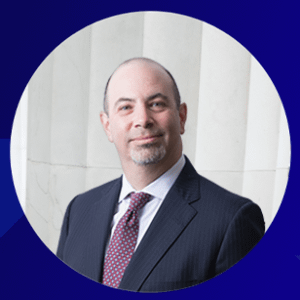
The relator (the term for the whistleblower in a False Claims Act lawsuit), Higgins, alleged that Boston Scientific made certain false certifications relating to the company’s defibrillators, thereby causing physicians to submit false claims for payment relating to the use of those devices. As is usual in qui tam cases, after filing the lawsuit, the Department of Justice opened an investigation and requested documents (known as a “civil investigative demand” under the False Claims Act) to Boston Scientific. The company turned over documents to the Department, but then also created and made “presentations” to the government. While the court’s decision does not describe those “presentations,” presumably they were slideshows or other materials, put together by Boston Scientific’s lawyers, to try to convince the Department of Justice to shut down the investigation or to decline intervention in the lawsuit.
Unscrupulous companies have found many different ways to take advantage of vital government programs. The False Claims Act is an essential weapon in the fight against government programs fraud since it was first enacted during the Civil War to combat war profiteering. The system often depends on whistleblowers telling their story with the help of an experienced False Claims Act attorney.
These private citizens bring qui tam (whistleblower) lawsuits under the False Claims Act (“FCA”), which allows them to act on behalf of the U.S. government in exposing government programs fraud committed by companies serving the federal government. Under the FCA, relators (fraud whistleblowers) receive a portion of the money that has been recovered by the government, known as the relator’s share.
After the government declined intervention in the case, Higgins decided to pursue the case on his own (which a relator is permitted to do), and he served a document request on Boston Scientific demanding production of any such presentations. Boston Scientific did not want to turn over the materials and therefore raised four separate legal objections. It was those objections that Judge Ericksen addressed in her opinion.
First, Boston Scientific objected to turning over the presentations because they were akin to “settlement negotiations” with the government, and thus not “relevant” to relator’s lawsuit. The court, however, ruled that although settlement negotiations might not be admissible at trial, they were still subject to discovery by Higgins because “they were related to his claims about the medical devices at issue.”
Second, Boston Scientific objected because “public policy” required protection of the presentations, arguing that “the government will not be able to settle False Claims Act cases if a defendant’s presentations to the government could later be revealed to relators.” Judge Erickson, however, found nothing in the False Claims Act that supported this position. While the government might not be able to turn over such presentations under certain circumstances, nothing in the statute prevented Boston Scientific from turning them over to relator.
Third, Boston Scientific claimed an “expectation of confidentiality” in the presentations, citing a 1977 decision by the Eight Circuit Court of Appeals. Judge Erickson rejected that contention, finding that the earlier Circuit Court decision related to attorney-client privilege, but not to the work product doctrine. Because the materials that Boston Scientific had provided to the Department of Justice were not covered by attorney-client privilege, the company’s only argument was “work product,” and that argument was not sufficient to support its claimed “expectation of confidentiality.”
Finally, Boston Scientific argued that the work product doctrine itself protected the presentations from disclosure. Judge Erickson easily disposed of that argument, noting that work product protection “is waived by intentional disclosure to an adversary,” and that the government was indeed Boston Scientific’s “adversary,” even though the Department of Justice later declined to intervene in the case.
The court’s decision was correct. Although Boston Scientific’s attorneys came up with several creative arguments in an attempt to protect the “presentations” from discovery, none of them had any merit. Although a defendant in a False Claims Act case is free to communicate with the Department of Justice, the defendant cannot assume that those communications will remain secret, particularly from the relator who has brought the very lawsuit under investigation by the Department. The relator is entitled to know about those communications, especially if they are relevant to the merits of the relator’s case (which they almost always will be). Accordingly, Judge Erickson reached the correct result and established useful precedent on this recurring issue.
If you believe that you may have information about a company committing fraud against the government, the Qui Tam Attorneys at Tycko & Zavareei are always available to assist in bringing a case forward. We have years of experience litigating under the False Claims Act and have won clients millions of dollars in compensation over the last decade. Our expert qui tam attorneys have the resources to provide you with guidance on various types of whistleblowing cases, such as fraud within government programs, securities and commodities, tax payments, the banking industry, and more. If you would like to consult with one of our False Claims Act attorneys, please fill out our Confidential Case Evaluation Form or call (202) 973-0900 to speak with a lawyer.

